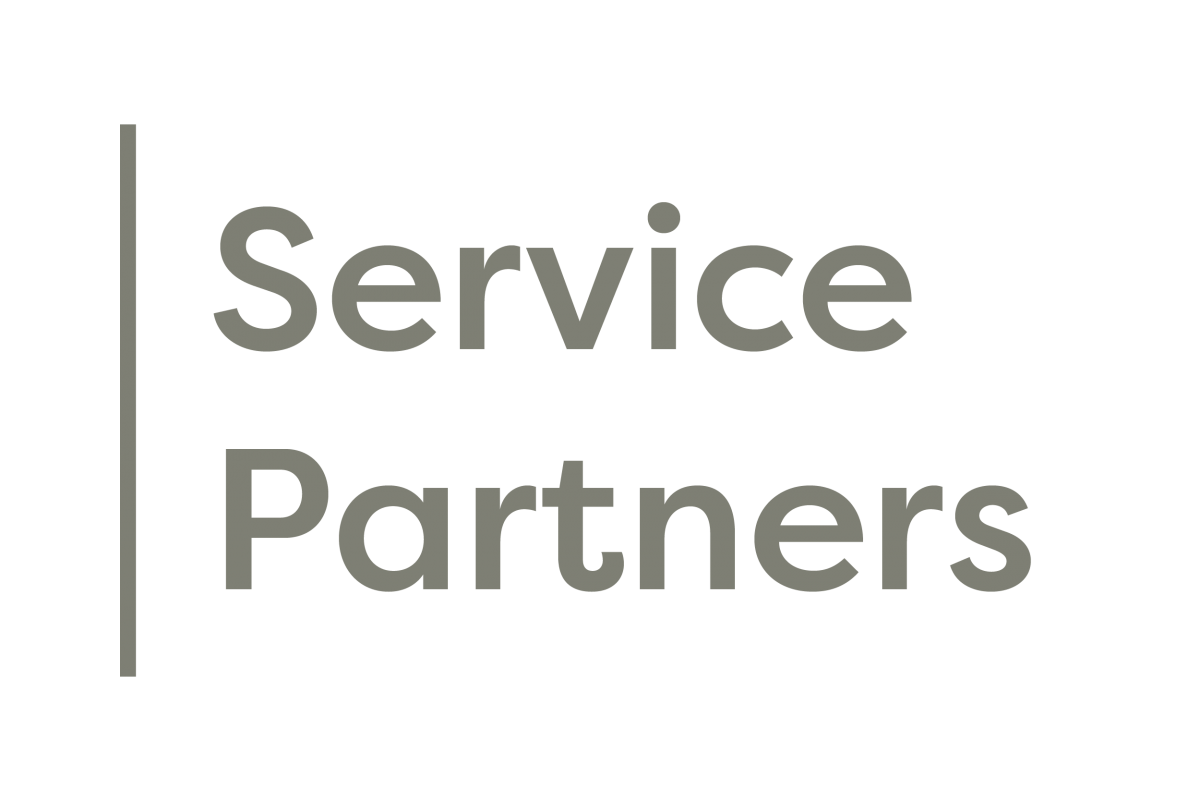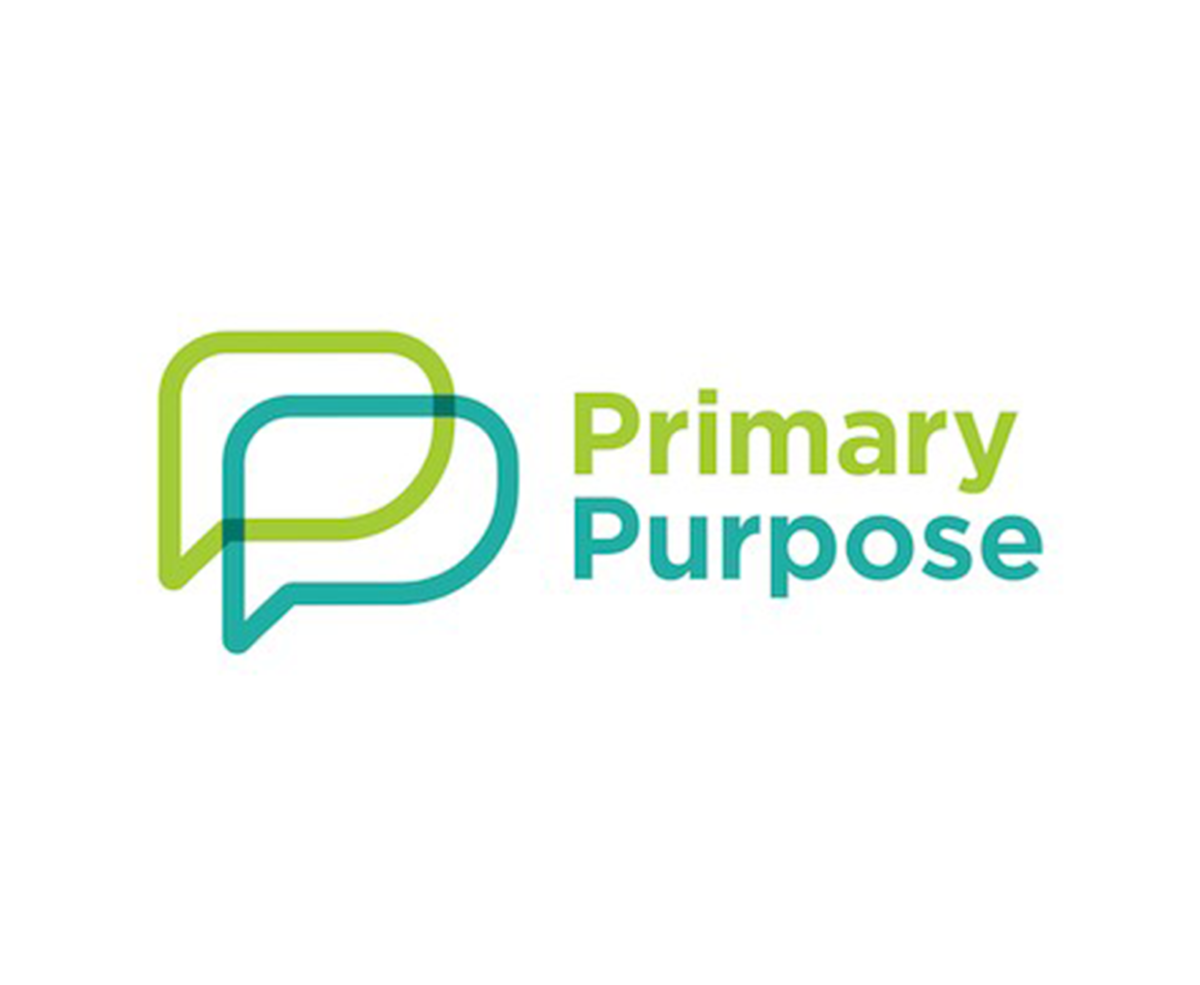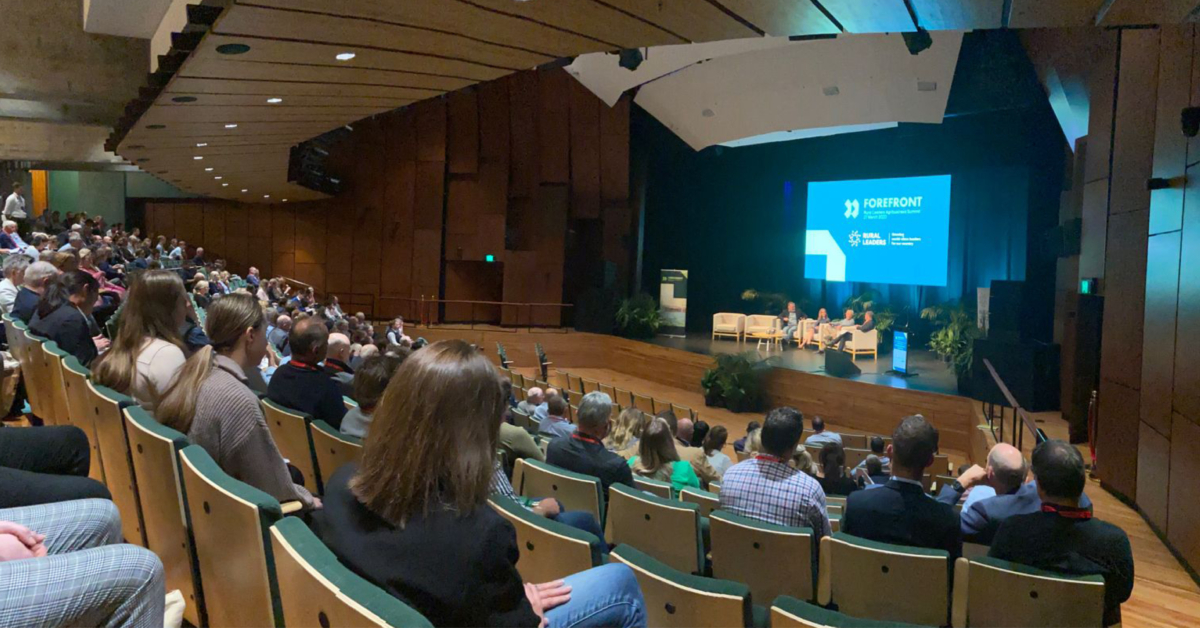
By the time 2023 Rural Leaders Agribusiness Summit attendees heard from Devry Boughner Vorwerk, she had spent two days visiting local farming operations and attending functions on the Nuffield Triennial Conference’s opening weekend. There was also an interview with Rural Exchange – REX too.
As Keynote Speaker at Monday’s Summit, Devry helped set the tone of the day, with ‘Getting Grounded in the Humanverse’. The Humanverse, as Devry explained it, is this,
“The Humanverse challenges us to remain focused on the human condition and to end human suffering.”
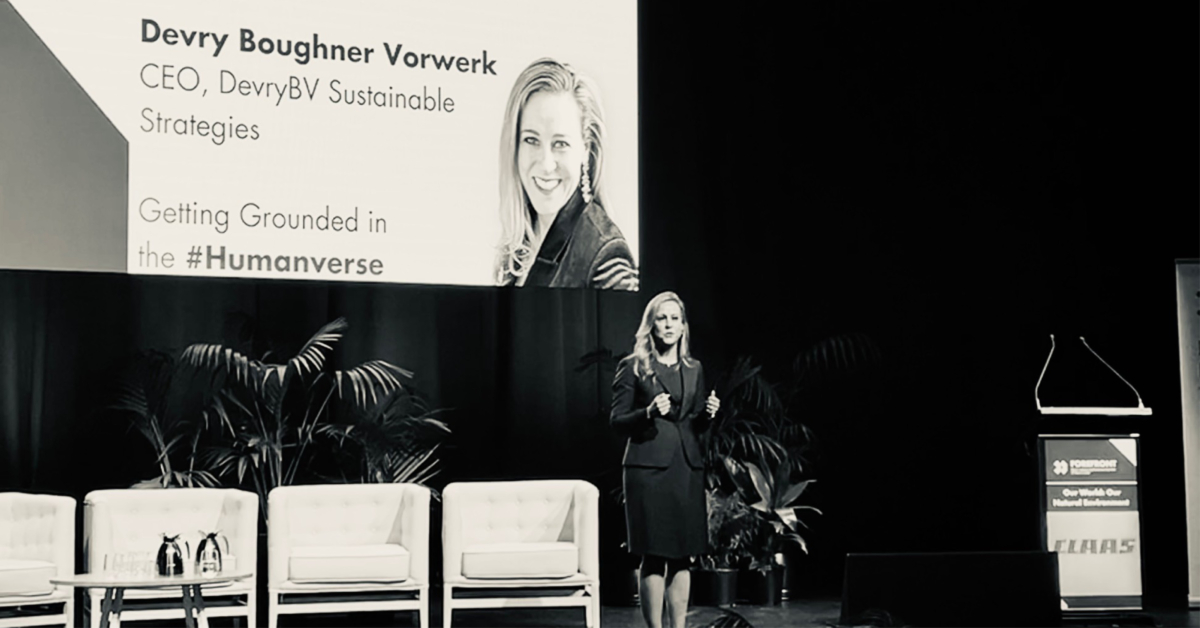
It does this by “…disrupting today’s business practices, profit models, static industry infrastructure, organisational cultures and designs, investment strategies, leadership decisions, public policies, and all other underlying factors impacting food security and nature, to ensure that humanity flourishes now and into future generations.”
You can learn more about the Humanverse by listening to March’s Ideas that Grow Podcast. Or, take a look at a recent post below. In the lead up to the Summit, Devry outlined the concept stating that [in the Humanverse],
“We’re not anti-technology. We are not anti-capitalism. We are pro-humanity.”
Here’s a recent LinkedIn post giving more detail.
Devry’s talk was pitched well and provided a plausible and actionable reframe of the ‘how do we do this’?
What is humanity asking of you? What are people asking of you? What is nature asking of you?
Here’s a breakdown of the Summit’s speakers through the posts and thoughts of those in the audience.
Our World: Our Natural Environment.
Erica van Reenen: Climate Change 101.
Erica bravely stepped into the programme after a speaker withdrew at the last-minute. Erica delivered a fantastic talk, summed up in a post by Ariana Estoras here,
“Erica put the extensive facts on the table on what farmers have to work with to lower methane emissions (not a lot, yet), in a compelling and pragmatic way without any spin or agenda. Except to remind us all that there is still a long way to go and we need to be bold and brave and stay the journey together.
Ka mau te wehi e hoa!”
Karin Stark: The Power of On-Farm Renewables.
Karin flew in from Australia to deliver an excellent talk on the role of on-farm renewables in reducing energy costs and emissions. It was a strong example of the real solutions that underpinned the Summit.
Tom Sturgess: Balancing the Needs.
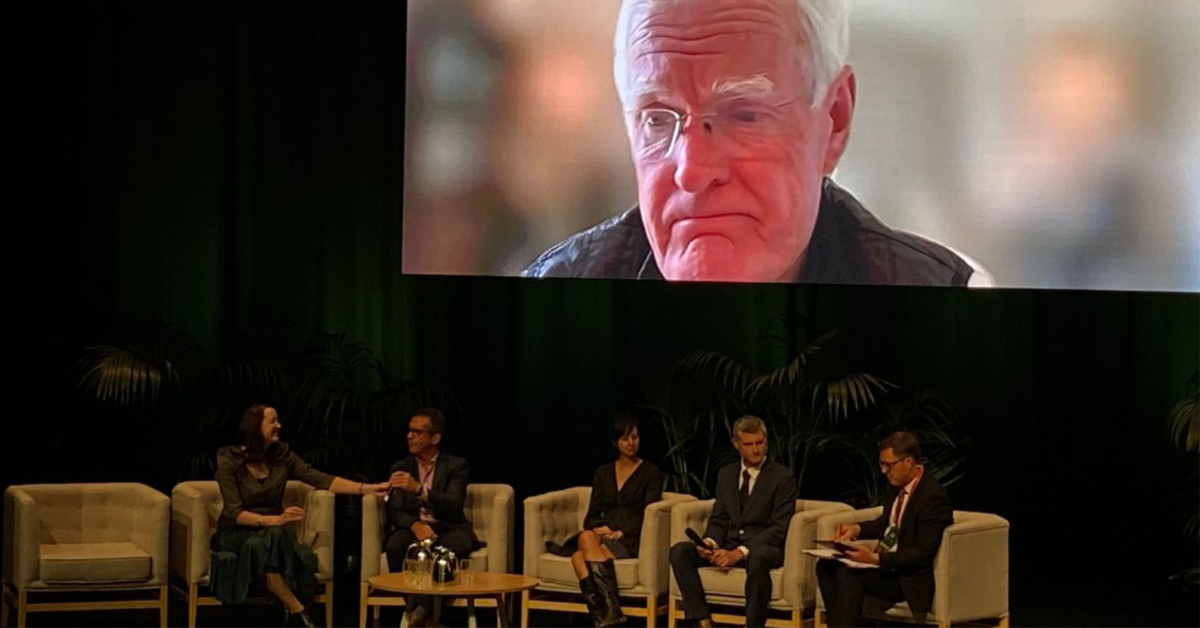
Tom discussed the importance of embracing global challenges through conversation, innovation, and collaboration, as well as changing behaviour at scale.
As Olivia Weatherburn summed up in a post,
“Tom Sturgess, owner of Lone Star Farms and founder of methane mitigation ventures, woke us up with his insightful and to the point thoughts on food production and emission reductions. ‘We can do this but let’s use the science.’”
And Penny Clark-Hall offered her take out too, quoting Tom in a post,
“We can do it without gutting the Ag sector. History has shown it comes down to the consumer, their perception, and desires.”
Simon Love enjoyed this quote from Tom, on his focus on on-farm sustainability: “It’s good for the animals – they have a lovely life. Except one bad day…”
Volker Kuntzsch: Algae and the Blue Wave Economy.
Volker spoke about the potential value of algae and the sustainability opportunities that lie within our oceans which make up an unbelievable 96% of our economic zone.
Penny Clark-Hall quoted Volker in a post, “We’ve got an indigenous knowledge base which is amazing.”
Our People: Consumer Trends and Trade.
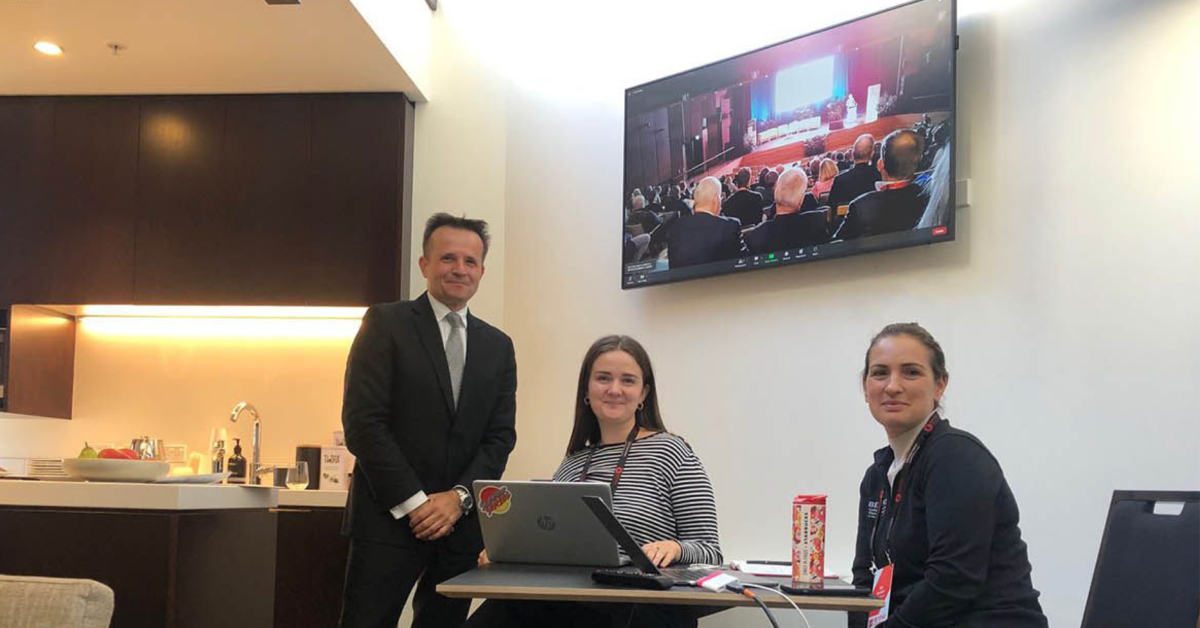
Vangelis Vitalis: New Zealand Agriculture and Global Trade.
Discussing a global view of trade, from a New Zealand perspective, Vangelis delivered an informative talk. Penny Clark-Hall’s key take out, in her post, “The environment is featuring strongly in FTA’s and we need a China+ strategy.”
Simon Love enjoyed this quote from Vangelis Vitalis on maintaining and growing our exports through sustainable practices:
“Doing nothing is not an option, and we have to be able to prove that we’re taking action”.
Lain Jager: GM and the Future of Agriculture.
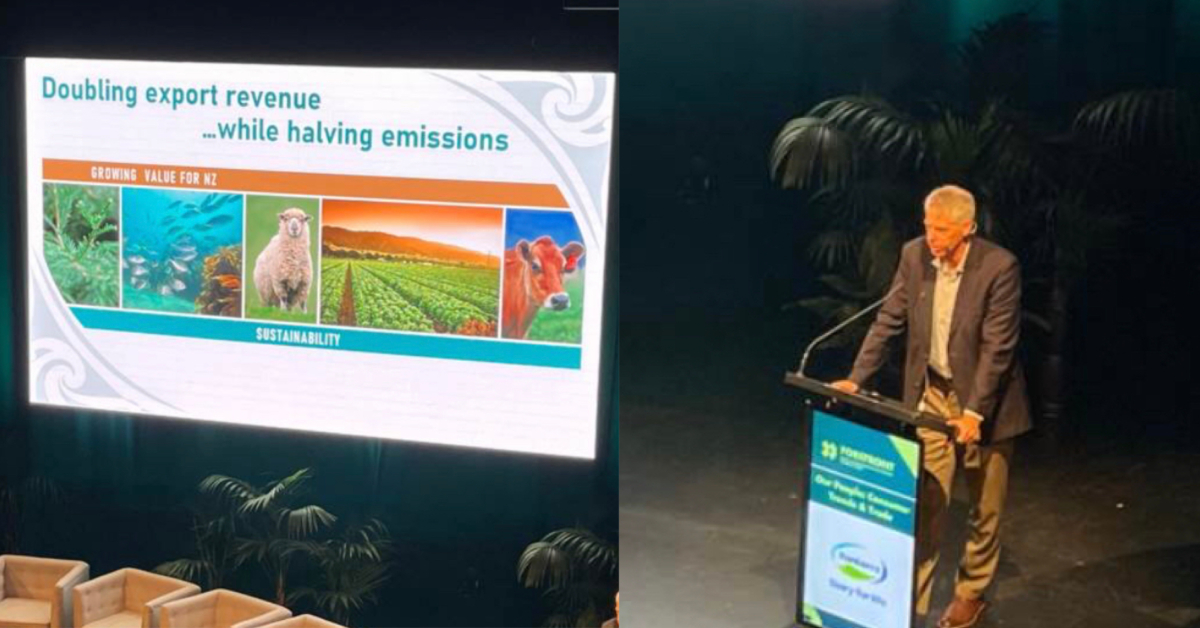
Lain looked at the current conversation on alternative proteins, innovation and genetic technology. Within that, where the opportunities are and the critical conversations required to grow value for New Zealand’s Food and Fibre Sector.
Penny Clark-Hall posted a quote of Lain’s, “Our sector is like a big dining room where we have the privilege of knowing everyone.”
Lain also issued a challenge, captured in an image by Hamish Marr.
‘Doubling export revenue – while halving emissions.’
Emma Parsons: Managing Sustainability and Change.
Emma discussed how customers are playing a greater influence on what happens behind the farm gate and how farmers can and need to adapt to changing customer expectations.
On Emma’s talk, Penny Clark-Hall posted her take-out,
“What is good for the environment needs to be good for the farmer and the cow.”
David Foote: Alternative Sources of Capital for Food and Fibre.
Chairman of the Australian Cattle Council, David talked about how businesses in the food and agriculture industries access capital.
On the business of running a farming operation, we love this quote from David,
“The best form of fertiliser for a farm is the owner’s boots.”
Our Future: Entrepreneurship and Leadership.
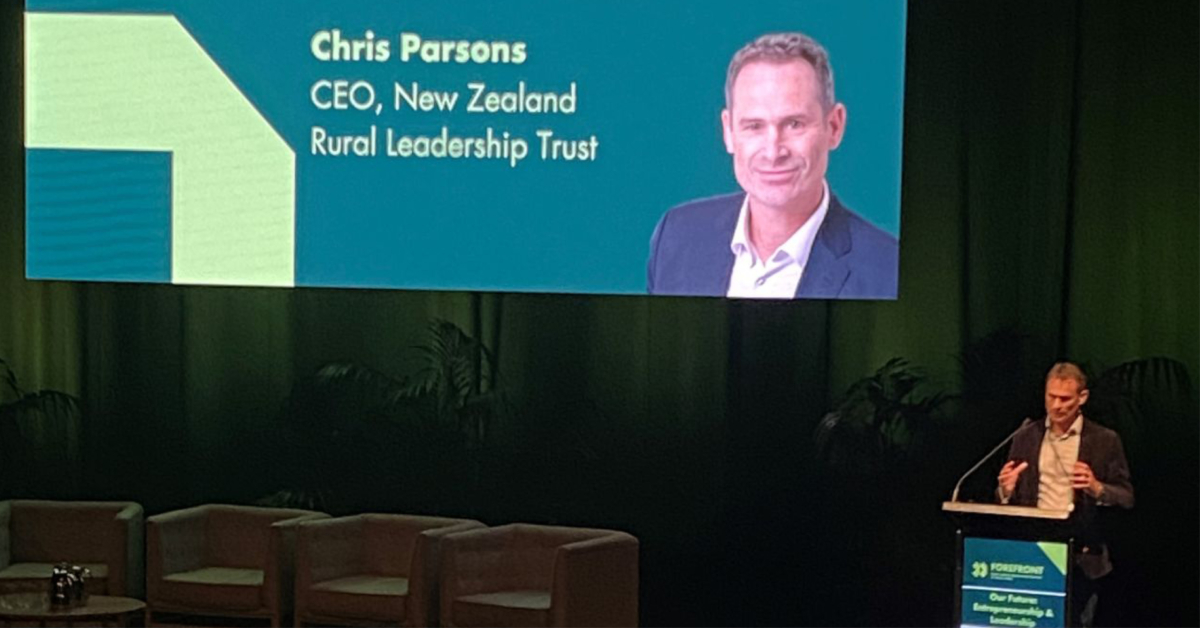
Chris Parsons: Developing our Future Leaders.
Chris spoke about the current state of leadership development in New Zealand’s Food and Fibre Sector. He drew on some of the findings from recent research conducted between Rural Leaders and the Food and Fibre Cove.
Chris also discussed the roles of Kellogg and Nuffield on rural leadership.
Penny Clark-Hall’s key take-out from this talk was, “The real value of leadership is to unleash the potential of others. [We need to] Move from an ego-system to an eco-system.”
Olivia Weatherburn added a quote from Chris in her summary of his talk, “‘We need to grow people like we grow hoggets’, nurture them from the start, unleash their power and build on their potential.’”
John Penno: Innovation and Entrepreneurship
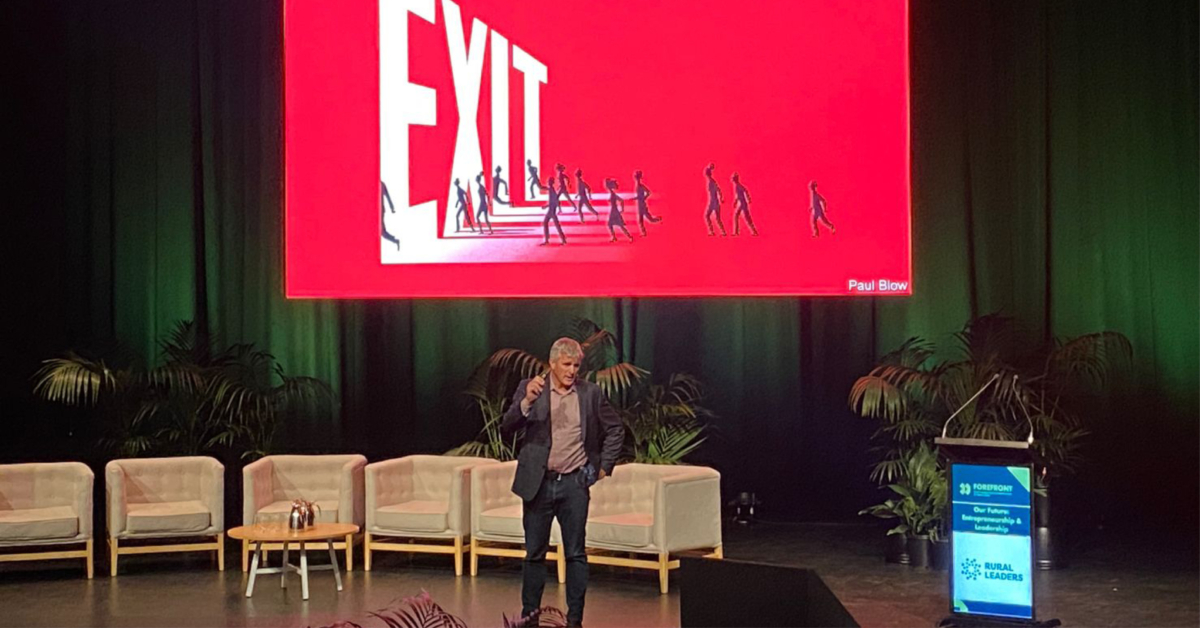
In a post Olivia Weatherburn said, “John Penno from Leaft Foods highlighted the importance of holding our decisions up to the lens of climate change as it isn’t going to go away and every decision will influence it.”
John’s work in developing Rubisco Protein Concentrate from the leaves of common forage crops, is another tangible example of real solutions in practice.
Mark MacLeod-Smith: Modern farming – Thinking Differently.
Mark MacLeod-Smith, CEO of Halter, talked about modern methods of farming and their role in simplifying farming while also combating issues like climate change.
A key take out from Mark’s talk, for Penny Clark-Hall was,
“If you want abnormal results you have to act abnormally.”
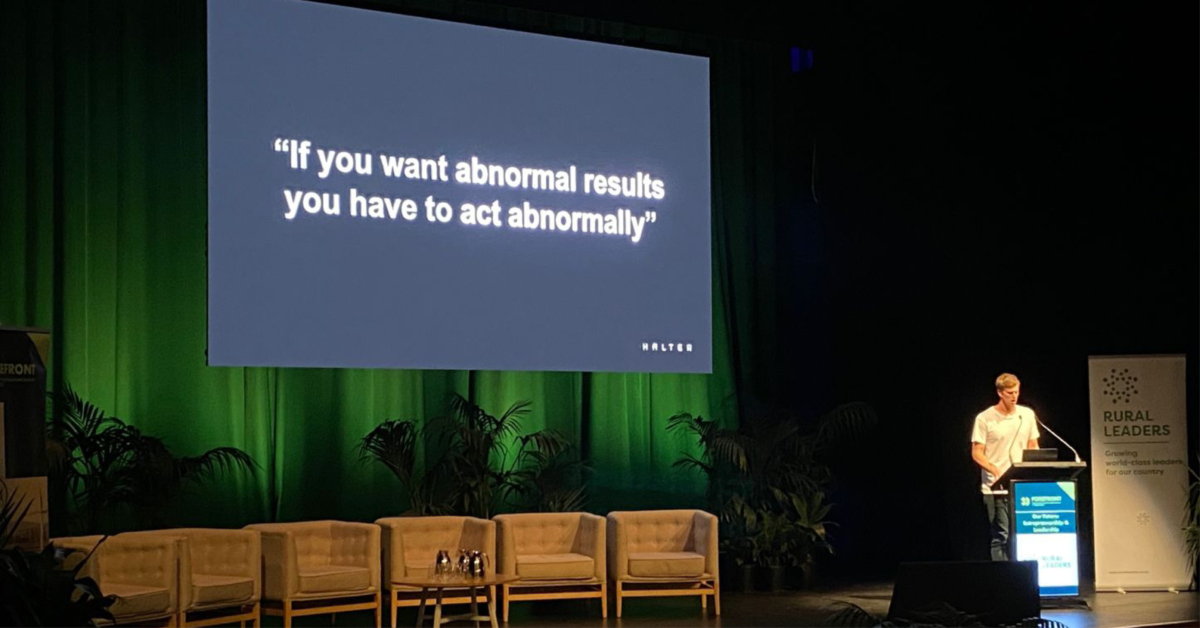
Dr Ellen Joan Nelson: The Future of Work.
Dr Ellen Joan Nelson spoke about her research and ideas on the future of work in New Zealand and further afield.
As Olivia Weatherburn eloquently summed up in a post,
“Dr Nelson was a bundle of energy and passion that just jumped off the stage at us.
She highlighted that if you give leaders belonging, autonomy and purpose they will have the ability to be authentic and authentic leaders are the best leaders because they are themselves.”
Julia Jones: Working Together for the Greater Good.
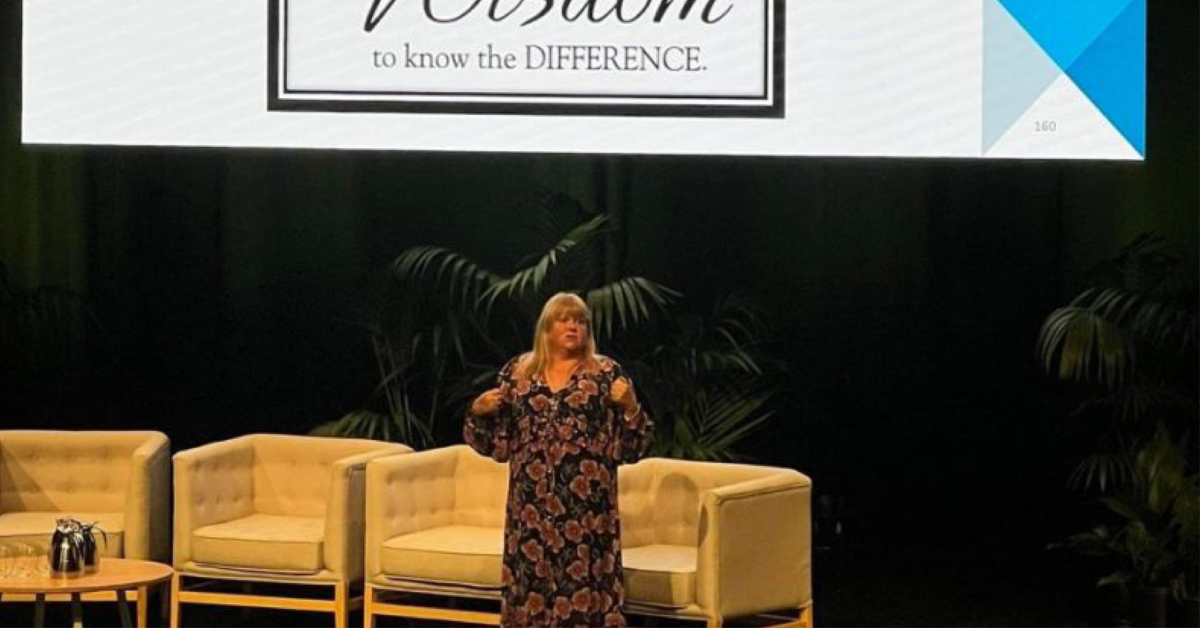
Julia spoke about collaboration in order to meet customer needs and sustainability goals while remaining profitable.
Olivia Weatherburn neatly sums up her talk in a post,
“…the powerhouse known as Julia Jones gave everyone’s abs a workout with her to the point yet humorous and thought provoking talk. It’s pretty simple, ‘…Life is not fair get over it and get on with it. Support people on how not to fear change. If you’re driving the fear then you are not leading.’”
And from Julia herself, in a post-Summit post on her talk, here are three key points,
“😥 Life isn’t an eternal road of joy, (be super boring if it was). Shit really does happen, pretending it doesn’t, or trying to side step it never ends well. Trust me it’s good for the soul to hit it head on sometimes.
🤷♀️ If we want to attract talent into your sectors, let’s not spend 90% of the time complaining about it. It’s cool to be honest about some challenges but there is a fine line between complaining and explaining.
💨 It’s healthy to vent but be aware of the impact your venting is having on those around you. If you are reinforcing fear you are not leading.”
In summing up the entire 2023 Rural Leaders Agribusiness Summit.
In a post by Emily Walker, the top takeaways for her were:
The time to change is now. To get to where we need to and want to be is going to require radically different action.
Take people on the journey, tell the story, empower teams and communities. Be transparent, evidence-based, share the data. (This applies locally, nationally and to our international customers).
Get out of the ruck and into the helicopter.
Simon Love gave this summation in a post-Summit post,
“The conference on Monday was an incredible line-up of speakers. A couple of highlights for me were the infectious energy (and to-the-point language) of both Tom Sturgess, and Julia Jones, the insights from Mark MacLeod-Smith into Halter’s journey, and Dr Ellen Joan Nelson’s insight of belonging, autonomy and purpose being at the core of a healthy and exciting workplace.”
And the final word to Julia Jones,
“Thanks for this opportunity Rural Leaders to be part of this event, it was such a special gift to make a pig of myself at the trough of knowledge is hugely appreciated. Lessons galore were gleaned from speakers and attendees a like 🙏”

















